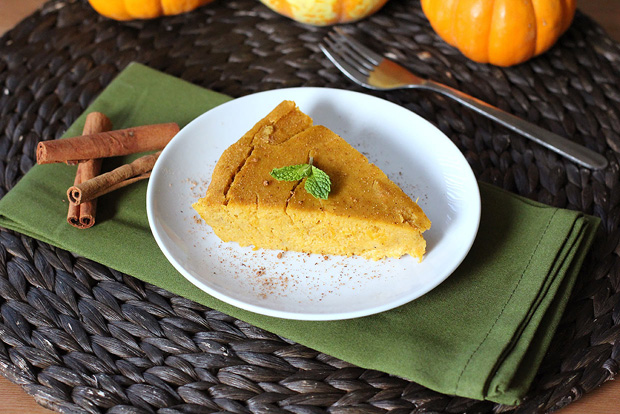Healthful Holiday Treats
06 Nov 2017
Strategies for enjoying the holiday festivities while eating healthfully
By EDNA COX RICE, RDN, CSG, LDN

The month of November arrives with leftover Halloween candy and the excitement of a Thanksgiving feast. Christmas and Hanukkah are only a few weeks away. These and other winter holidays are filled with family, friends, festivities, and food—lots and lots of food!
The holidays are a favorite time for family gatherings and celebrations. But this season can be an especially trying time for diabetics who have developed healthy eating habits to help control their blood sugar levels and even for losing weight. For them, just a few extra servings of food or a second dessert can wreak havoc on blood sugar levels. Weight gain often soon follows.
This seasonal angst affects more individuals than most realize. More than 29 million Americans have diabetes. According to a recent report released by the Centers for Disease Control and Prevention, that number is up from the 2010 estimate of 26 million. One in four people with diabetes doesn’t even know he or she has the disease. Eighty-six million adults as young as 20 years old are pre-diabetic. Left uncontrolled, this leads to diabetes.
Well-intentioned coworkers and family members offer tempting plates of holiday treats and goodies. Many diabetics feel like all those candies, cookies, and carbs are closing in on them. They may want to give everyone a piece of coal for Christmas and hibernate through the holidays.
Most consider sweets a diabetic’s worse enemy, but it’s more complicated than just avoiding sugar. The daily total carbohydrate intake is what counts. A serving of mashed potatoes can cause blood sugar levels to spike just as a candy bar would. Fat is also abundant in holiday foods and can impact blood sugar levels. Lowering fat, especially saturated fat, is important and should be kept to a minimum in holiday cooking.
The holiday festivities begin in November, which just happens to be National Diabetes Awareness Month. If you, a family member or friend has diabetes, use these supportive strategies during the tempting food-filled season. Diabetics don’t have to completely give up all their holiday favorites.
Holiday Proof Your Plan
Meet the holiday food challenge with a plan.
- Don’t skip meals to make room for the feast. Skipping meals makes it more difficult to control blood sugar levels and you’re more likely to overeat when you’re hungry.
- Snack before the party. Eat a light snack before going to the party. If you’re not ravenous, you’re less likely to give into temptation.
- Veggies first. Start with the veggies to take the edge off your appetite.
- Stick to your routine. Try to maintain your usual meal times to keep your blood sugar levels steady. If a meal is served later than normal, eat a snack at the usual meal time and a little less at dinner.
- Bring your own. Anticipate the party foods and bring a healthier version of a favorite. Reduce the sugar or the fat. Use a sugar substitute or substitute pureed fruit for the fat.
- Indulge. Enjoy that one sweet treat, but cut back on other carbs like potatoes, pasta, and bread.
- Stay on track. If you slip up, get right back on track to eating healthfully.
- Use small plates. Fill a smaller plate with the foods you like best. You’ll start out with smaller portions.
- Mingle. Move away from the food tables and mingle with your friends
Fit in Your Favorites
Will you be naughty or nice in your food selections?
- No foods are on the naughty list
- Small servings satisfy
- Count carbs, not treats
- Whole grain fibers keep you full longer
Watch the Extras
- Sip on hot chocolate, skip the whipped cream
- Sweet potatoes, minus the marshmallows
- Green beans, without the creamed soup and crispy onions
- Biscuits, sand butter
- Eat the pie, lose the ice cream
Focus on Fun
Decrease the emphasis on food and focus on family and fun. Holidays are about more than the food at a celebration. Being active is a secret holiday weapon that can help make up for eating more than usual and help to reduce stress. Plan activities to get everyone out of the kitchen and away from the table.
- Turkey Trots are a popular way to start the day on Thanksgiving. Burn up calories before you load up at the big meal.
- Play a family game of soccer or football.
- Watch a favorite holiday movie; make it an annual event.
- Take your family and guests ice skating.
- Go Christmas caroling and spread a little joy while walking off your dessert.
- Get moving!
The goals of a healthy diabetic diet are to control the daily intake of carbohydrates, reduce sugar and sodium, increase fiber, replace saturated fats and trans fats with heart healthy monosaturated fat. This approach is a good plan for everyone who desires to eat healthier. With a holiday-proof plan, you can outsmart the extras, stay active and healthy, but most of all enjoy the real reason for the holiday season.
No-Pie Pumpkin Pie
This crustless pie is a great choice for anyone managing their carbohydrates, weight, and heart health — and it’s gluten free.
Prep time: 10 min. Bake time: 50 min.
Yields 1 pie, 8 servings
Ingredients:
¾ cup Splenda
1 tbsp. Cornstarch
1 tsp. Ground cinnamon
½ tsp. Ground ginger
¼ tsp. Cloves
½ t. Salt
2 Large gg whites
1 can (15 oz.) Pumpkin puree
1 cup Skim milk
Directions:
- Preheat oven to 425°F. Coat a 9-inch pie plate lightly with nonstick cooking spray.
- In a small bowl combine Splenda, cornstarch, cinnamon, ginger, cloves, and salt.
- In a separate large bowl, beat the egg whites. Stir Splenda mixture into the larger bowl. Stir in the pumpkin puree. Slowly stir in the skim milk until all ingredients are uniformly mixed.
- Pour into pie plate and bake at 425°F for 12 to 15 minutes. Reduce oven temperature to 350°F and bake for an additional 30 to 35 minutes.
- Remove pie from oven and cool. Serve warm or refrigerate until serving.
Nutrition:
Calories per 1/8 pie 165
Total fat 0.2 gram
Sugar 5.0 gram
Fiber 3.5 gram












